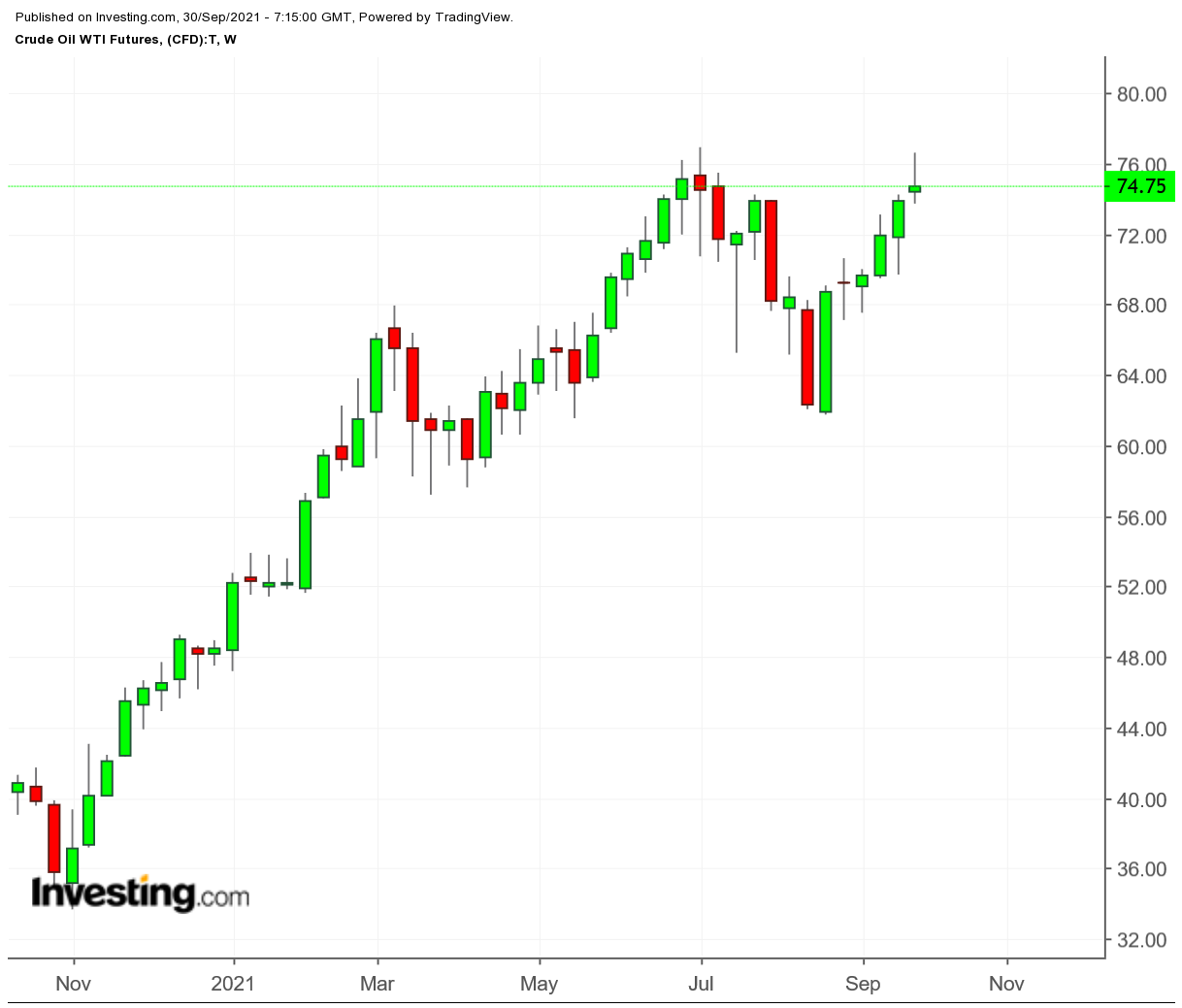NHL signs licensing deals with prediction-market startups Kalshi and Polymarket - WSJ
With oil prices at four-year highs and natural gas prices soaring in Europe and Asia, one key question is why has the American fracking industry failed to respond to higher prices by significantly increasing production?

After all, American fracking has been described as “nimble,” so where did that flexibility go?
The most common reason cited by prominent U.S. oil companies is that they plan to keep production flat in order to raise dividends for shareholders. A rather convenient answer, enabling them to focus their efforts on factors that make them more attractive to investors, but this answer doesn’t tell the whole story.
In a previous column earlier this year about the first quarter energy survey out of the Federal Reserve Bank of Dallas in March, I detailed 4 primary factors—industry consolidation, financing difficulties, pessimistic forecasting, and federal regulation—keeping oil companies from producing more oil.
The latest survey from the Dallas Fed reveals some new issues and a few surprises, including rising costs and an inability to hire qualified personnel. Here are 3 of the most important take-aways for oil traders from the latest survey:
1. Production Unaffected By Price And Price Forecasts
The biggest change between the first and second quarter surveys was in the revision in price forecasting. In March, many exploration and production (E&P) firms had pessimistic views about oil prices. At the time, WTI traded at about $61 per barrel. A majority of respondents in March expected that the price of WTI would decline by the end of December 2021.
Now, WTI is around $75 per barrel.
The latest survey reveals that 64% of respondents expect that the price of WTI will be between $65 and $75 per barrel by the end of December 2021, and 19% expect that the crude oil price could hit $80 per barrel by the end of December 2021. Yet, oil production has only marginally increased since March, despite a 25% increase in price and raised optimism seen in forecasts.
According to the EIA, U.S. oil production was at 11.1 million bpd at the end of March 2021, but it only increased by 400,000 bpd by the end of August. Note: the data for the end of August was before Hurricane Ida temporarily took out most of the offshore production in the Gulf of Mexico.
It was long believed that because of the nature of the fracking process and the relatively low capital expenditures per well, fracking companies could quickly deploy or scale back production based on oil prices. This may still be true in a technical sense, but the data shows this isn’t how shale oil producers are acting.
2. Rising Costs Are New Impediment
Many U.S. production companies that responded to the survey cited rising costs of raw materials, fuel and personnel as factors inhibiting production growth. For example, 39% of companies said their firm was having trouble hiring and that workers were looking for more pay than they were offering. Government restrictions and problems obtaining permits for pipeline construction were also seen as adding to company costs. Additionally, some cited ongoing issues with the supply chain.
For traders, the important takeaway is that the price producers say they need to profitably drill a new well is not a valuable metric for understanding whether shale oil producers will increase production. In March, producers reported that they could profitably drill wells in every shale oil region in the U.S. if the price of WTI was above $58 per barrel.
WTI prices have not only remained above $60 per barrel since then, but have climbed steadily to around $75 per barrel. Nevertheless, producers barely drilled any new wells and are now citing rising costs as a reason. This metric clearly isn’t helpful for understanding production growth at this time.
3. Financing Issues Could Change
Lack of access to traditional sources of capital remains an issue cited by oil producers, though some reported that they believe funders will be induced to return to the shale patch because companies are adhering to capital discipline, are paying off debt, and price forecasts are up. While some survey respondents still believe that the negative attitudes towards fossil fuel production espoused by the current administration will continue to suppress financing, this sentiment is not controlling.
In general, there is a new optimism amongst firms that they will soon be able to attract new investment. This may be overly optimistic, but traders will want to keep an eye on financing deals in the shale patches as a way of gauging when crude oil production in the U.S. might be ready for real growth.
